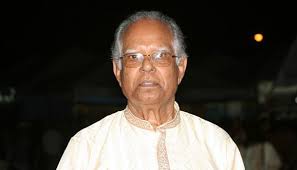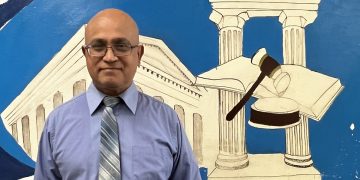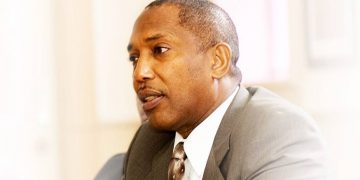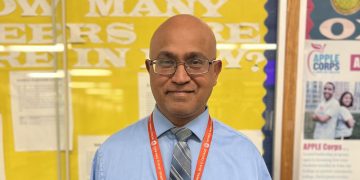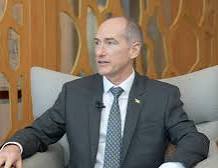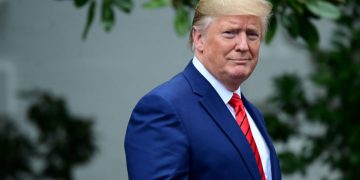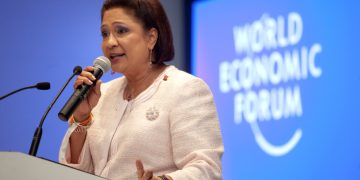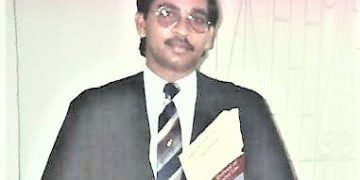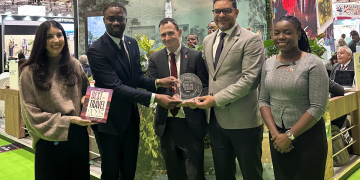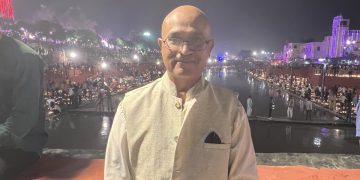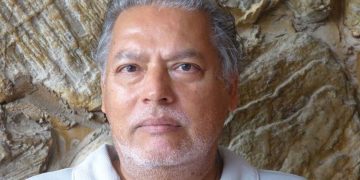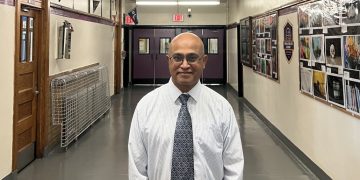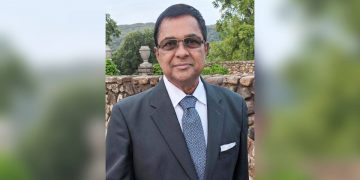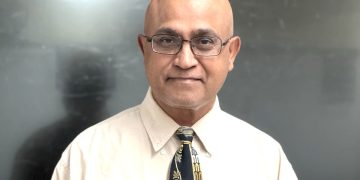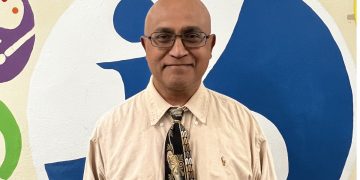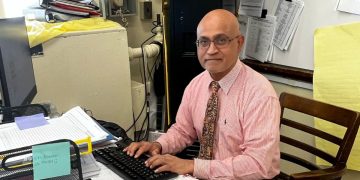Dr. Deokinanan Sharma (commonly known as Pope) passed away last week. Sharma-ji was former head of NCIC (National Center for Indian Culture or Diwali Nagar) of Trinidad that he led for many years, promoting Indian culture. He was a remarkable individual, passionate about promoting Indian culture. He served as President of NCIC for so long that the organization is co-terminus with his name, allowing him to achieved fame for his extensive contributions to Indian culture. And he was passionate about promoting Indian culture at NCIC. His sense of self-discipline and personal sacrifices for promoting Indian culture has always been his guiding principles. When NCIC faced challenges, Dr. Sharma did so with resilience, pride, and determination. He inspired his organization to stand up to state marginalization and discrimination (under both PNM and UNC administrations) with dignity when seeking funds for its many cultural programs, Diwali Nagar and an Indian museum.
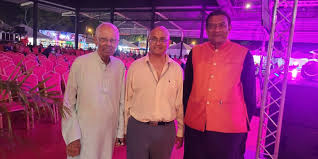 Dr Sharma was also promoter of Indo-Caribbean cultural unity. He is among a few examples of good leadership of a NGO or cultural organization in his native country. He was an endless source of inspiration for many. He brought Indians together from around the region to Trinidad and around Trinidad to NCIC headquarters for the annual Nagar in October. And he had encouraged Guyanese and other Indo-Caribbean people to transplant the Nagar in their territories. His legacy will stand as an example to all of us to persist in our immersion in Indian culture.
Dr Sharma was also promoter of Indo-Caribbean cultural unity. He is among a few examples of good leadership of a NGO or cultural organization in his native country. He was an endless source of inspiration for many. He brought Indians together from around the region to Trinidad and around Trinidad to NCIC headquarters for the annual Nagar in October. And he had encouraged Guyanese and other Indo-Caribbean people to transplant the Nagar in their territories. His legacy will stand as an example to all of us to persist in our immersion in Indian culture.
The Indian diaspora honor and celebrate the remarkable life and legacy of this outstanding cultural leader. Dr Sharma was a true, cultural leader who had a profound impact on the Indian community. He was not just a leader of NCIC (National Center for Indian Culture) but a source of inspiration to other Indians.
There are fond memories of remembering Dr. Sharma at countless interactions at NCIC headquarter, occasionally at his residence, and at many public events. I was fortunate to meet and interview Dr. Sharma multiple times in Trinidad over two decades. He invited me countless times for the annual Diwali Nagar in Chaguanas, Central Trinidad. I attended the marquee event almost every year over the last couple of decades, as did many other Indo-Caribbeans from the diaspora. Diwali Nagar was always a sight to behold with its brilliant, spectacular lighting and attractive cultural programmes, singing dancing, acting, drama, other forms of entertainment, rituals, pomp, ceremony, delicious cuisine, and prize winning fun activities. The Nagar has become a celebration and exposition of Indian culture, and it has become an integral part of the national calendar of Trinidad held annually for about nine nights concluding on the eve of Diwali. Indians from around the region (Jamaica, Belize, St. Lucia, Grenada, Suriname, Venezuela, Guyana, etc.) performed at the Nagar at different times. Every year, the Nagar had a different theme, displaying India’s cultural and religious civilization and yoga, her soft power, and promoting India.
Dr. Vindya Persaud, President of Guyana Dharmic Sabha, praised Dr. Sharma’s leadership of NCIC when she was featured speaker delivering the keynote address at the Nagar in 2016. She thanked him for unwavering dedication to the Indian community and the tireless efforts of himself and the organization in organizing and institutionalizing cultural events. As she noted, his organization brought people together and treated leaders of organizations with utmost respect. This organization has helped Indians and others to understand and appreciate Indian history, civilization, and culture.
Through programs of NCIC, Indians got and others to understand and celebrate Indo-Trinidadian and India’s vibrant cultural diversity. Dr. Sharma, through NCIC, helped to share the rich culture of India and Hinduism with people around the region. He and NCIC helped to connect Indian Trinidad with Indians around the greater Caribbean region and the Indo Caribbean diaspora in North America and Europe and with India, and the Indian diaspora in Fiji, Mauritius and Africa. Sharma, his predecessor at NCIC, and others helped to create a Diwali Nagar brand that millions patronized over the last three decades.
His vision and dedication live on through our actions and continued commitment to the causes he held dear.
Dr. Sharma did not dabble in politics, but he supported Winston Dookeran when Dookeran and others remained with ANR Robinson in the split with Panday’s ULF in 1988. But Dr. Sharma supported Basdeo Panday and the UNC including his and the party’s rise to government in November 1995. However, Dr. Sharma was disappointed with allegations of corruption and the split between Panday and Ramesh Maharaj in 2001 that led to the defeat of the UNC in snap elections in December that year. Sharma supported and praised Kamla’s leadership in 2010, including her challenge of Panday for leader of the party, but became disappointed in aspects of governance and the stench of corruption, a repeat of what transpired under Panday’s UNC (1998-2000). In private, Sharma was critical of Kamla for holding on to leadership of the party after her defeat in 2015 and for staying on as leader in spite of recurring defeats in elections. Sharma expressed confidence that under new, credible leadership, an UNC led united opposition will comfortably win the 2025 elections.
Dr Deokinanan Sharma’s contribution to Indian culture over the last three decades will remain deeply ingrained in the recent history of Trinidad and Tobago.
